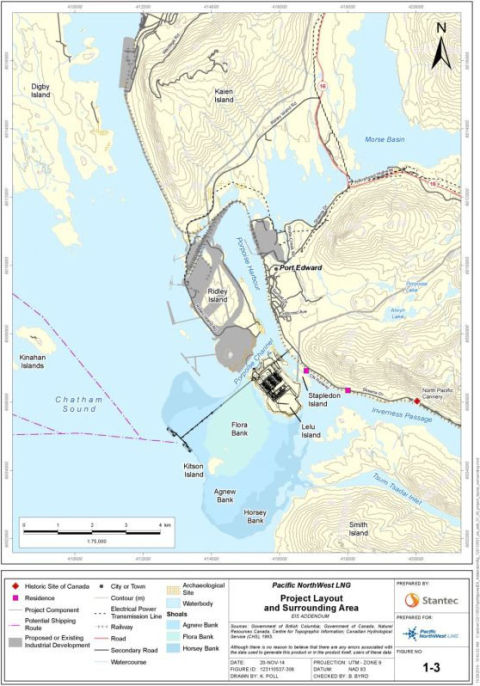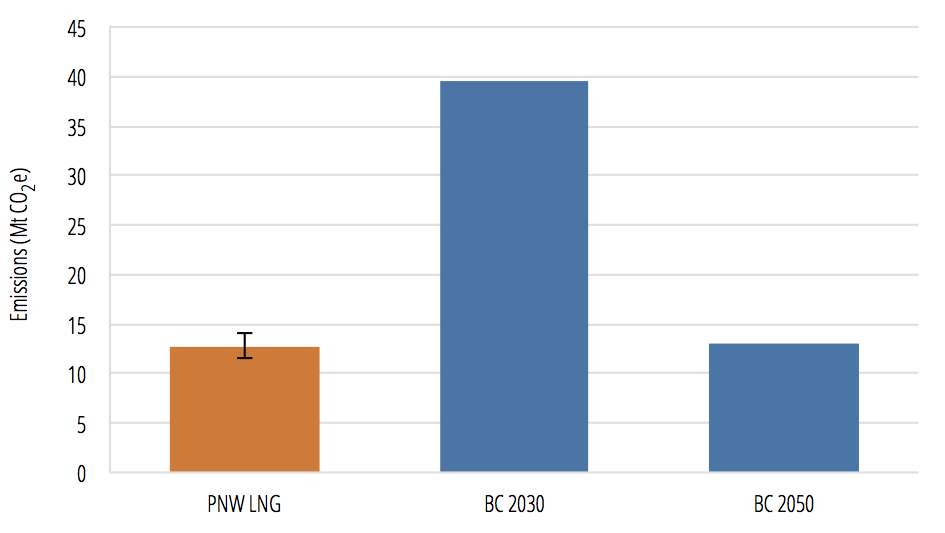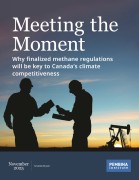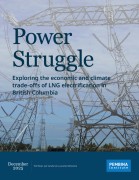This letter contains the Pembina Institute’s comments to the Canadian Environmental Assessment Agency on the draft environmental assessment report for the Pacific NorthWest LNG project on Lelu Island, near Prince Rupert.
In summary, Matt Horne, B.C. associate director for the Pembina Institute, makes the following points:
- The greenhouse gas emissions from the project and the associated upstream activity are significant and represent material challenges to B.C. and Canada being able to meet their climate change targets. In the case of B.C. in particular, the project and the associated upstream activity as designed under current policy makes achieving B.C.’s 2050 target an implausible scenario.
- The challenges to B.C. and Canada’s efforts to reduce GHG emissions will be exacerbated because of two issues: 1) the international agreement on climate change reached in Paris will require Canada to increase its ambition to reduce GHG emissions over time (and this requirement is embedded within the Vancouver Declaration signed by the prime minister and the premiers on March 3); and 2) the methane emissions from upstream gas included in the draft report likely underestimate the true contribution of methane to the overall emissions from the project and its associated upstream activities.
- Based on a comparison with other LNG projects proposed for B.C. and evidence on the potential to reduce upstream emissions, it is clear that better practices are possible and already being planned for similar developments in B.C. If the project and the associated upstream activity followed those better practices for managing GHG emissions, it would reduce, although not resolve, the challenges described in the previous two bullet points.
- The climate change policies currently in place are not adequate to require better practices and put the province and country on track for their climate change commitments. The ongoing freeze in B.C.’s carbon tax and exemptions in carbon tax coverage undermine its ability to encourage cuts in GHG emissions from the project and upstream activities. Three of the four compliance pathways under B.C.’s Greenhouse Gas Industrial Reporting and Control Act do not ensure GHG emissions reductions from the project.
- The project will not help to reduce global GHG emissions, and this argument (advanced by proponents and the province) should not be used to justify the increased GHG emissions in B.C. and Canada. The increased availability of natural gas and LNG does not result in the needed transition away from fossil fuels. The main determinant of that transition will be how effectively national and sub-national jurisdictions adopt climate change policies to reduce the GHG emissions they are responsible for.
SkeenaWild Conservation Trust included the Pembina Institute’s letter in its formal submission to the CEAA on the Pacific NorthWest LNG project.









